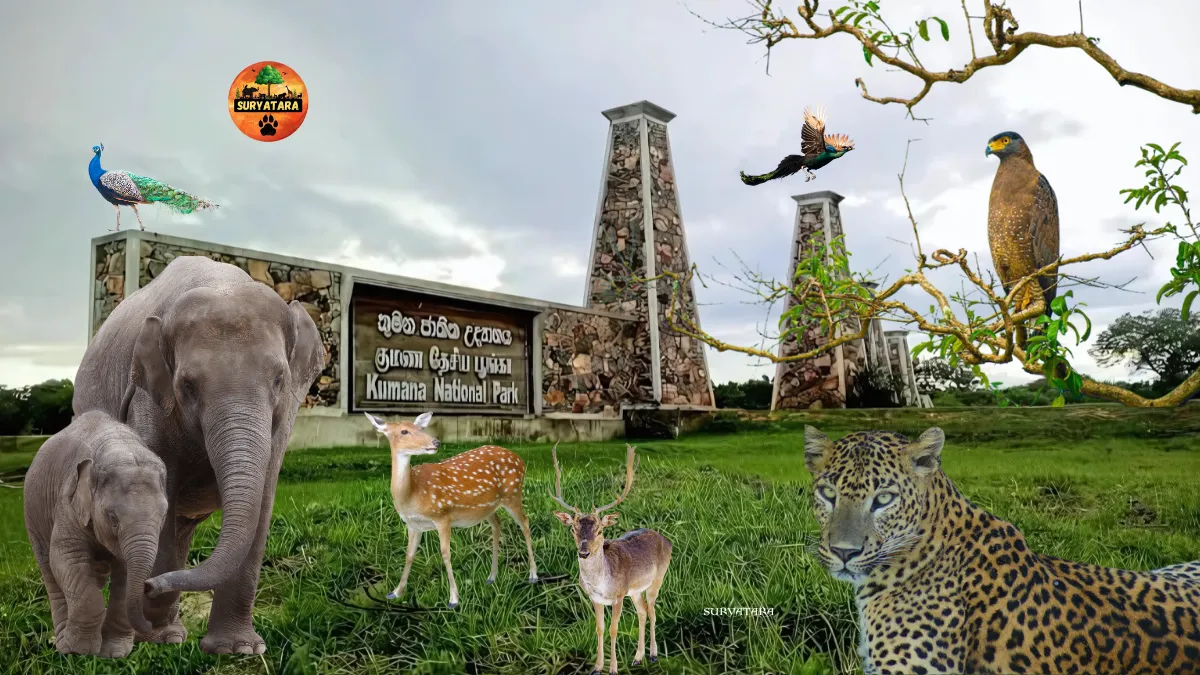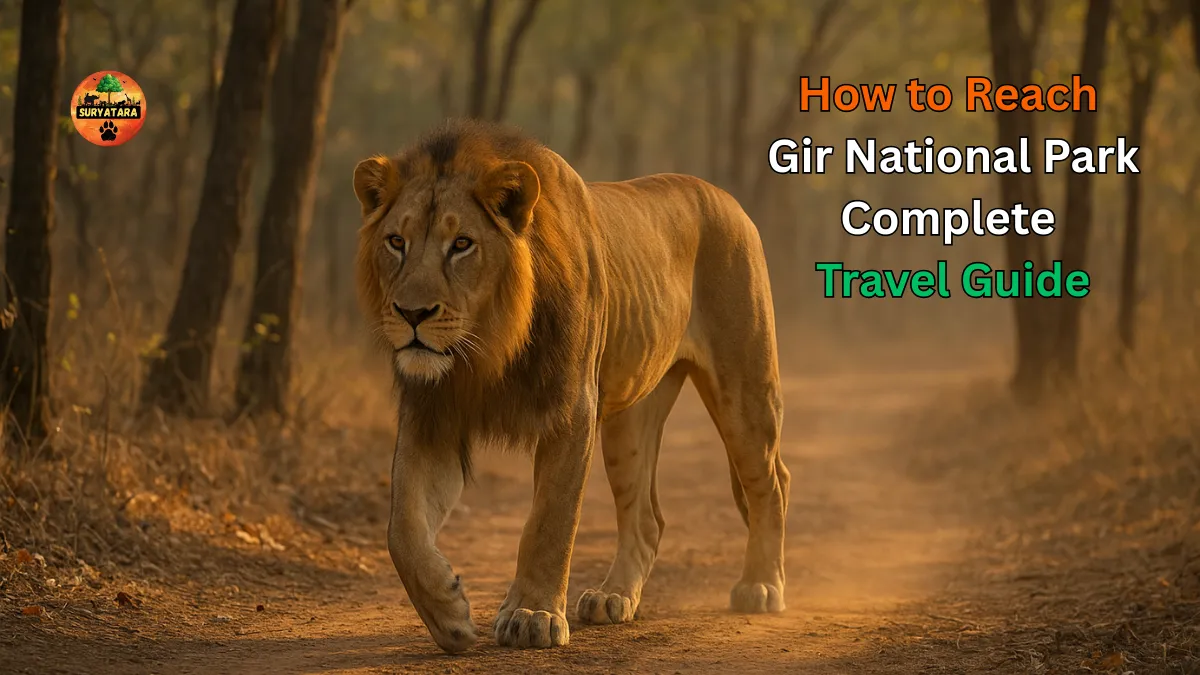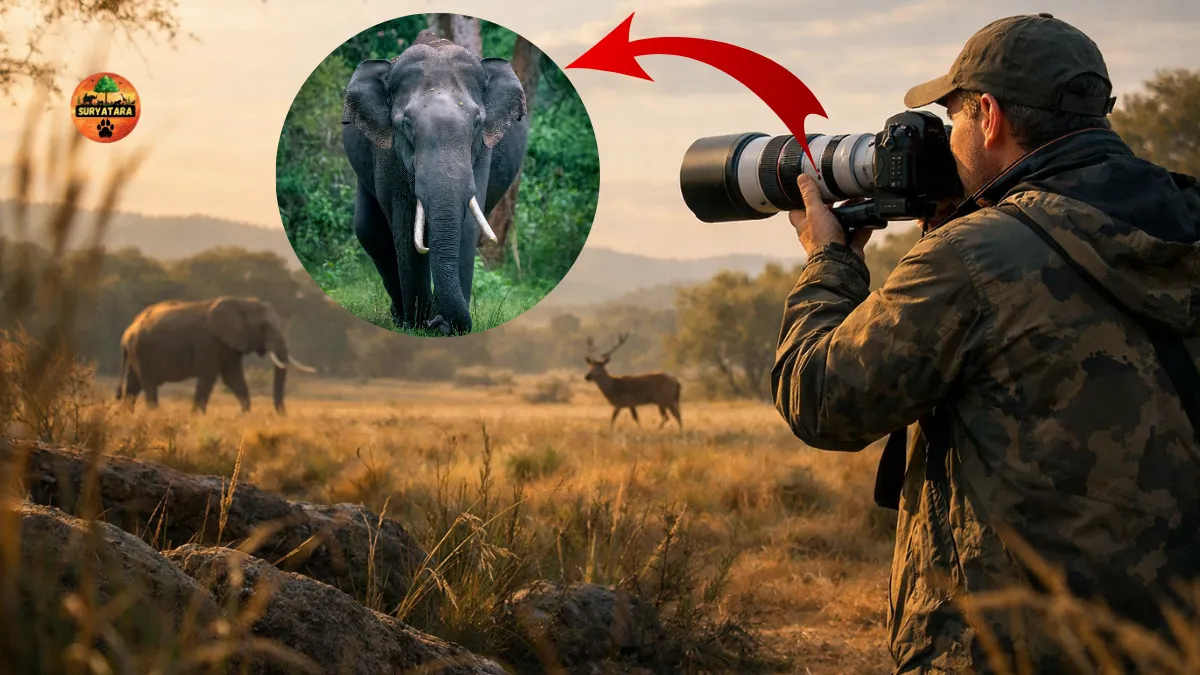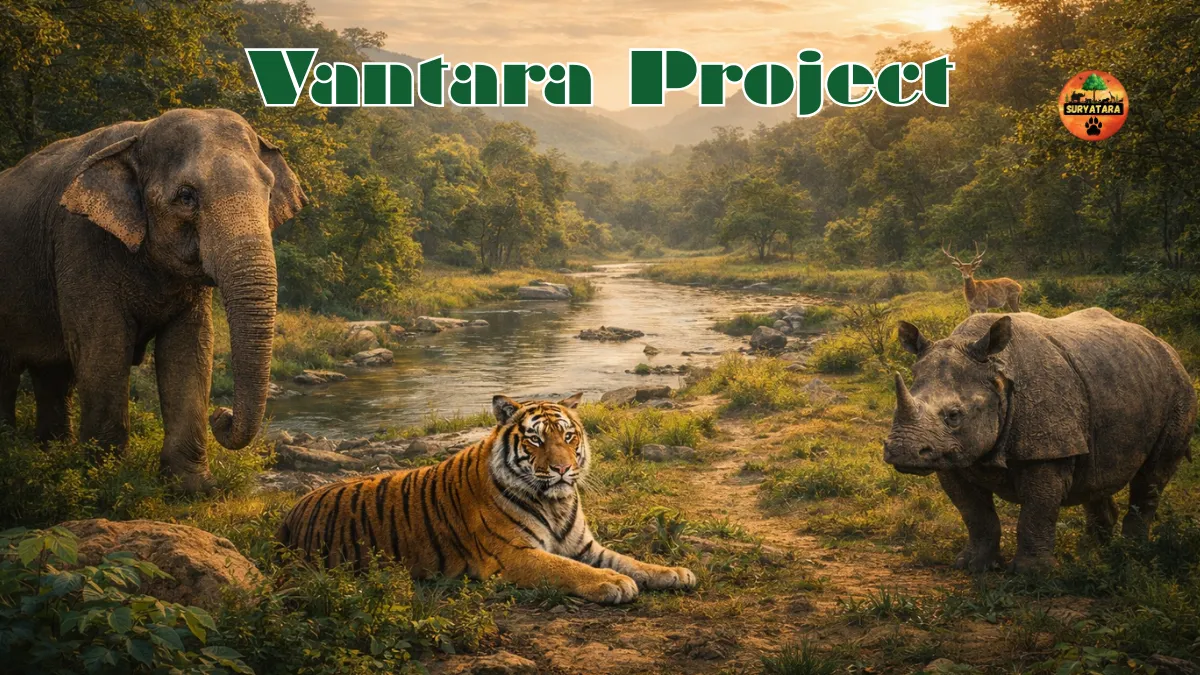Kumana National Park is a true sanctuary for bird lovers and wildlife enthusiasts, located on the southeastern coast of Sri Lanka. Often overshadowed by the more famous Yala National Park, Kumana offers a quieter, more intimate wildlife experience, especially known for its abundant birdlife. This park is not only a haven for migratory birds but also home to elephants, leopards, and crocodiles, making it a diverse destination for nature travelers.
Explore the Unspoiled Beauty of Kumana National Park
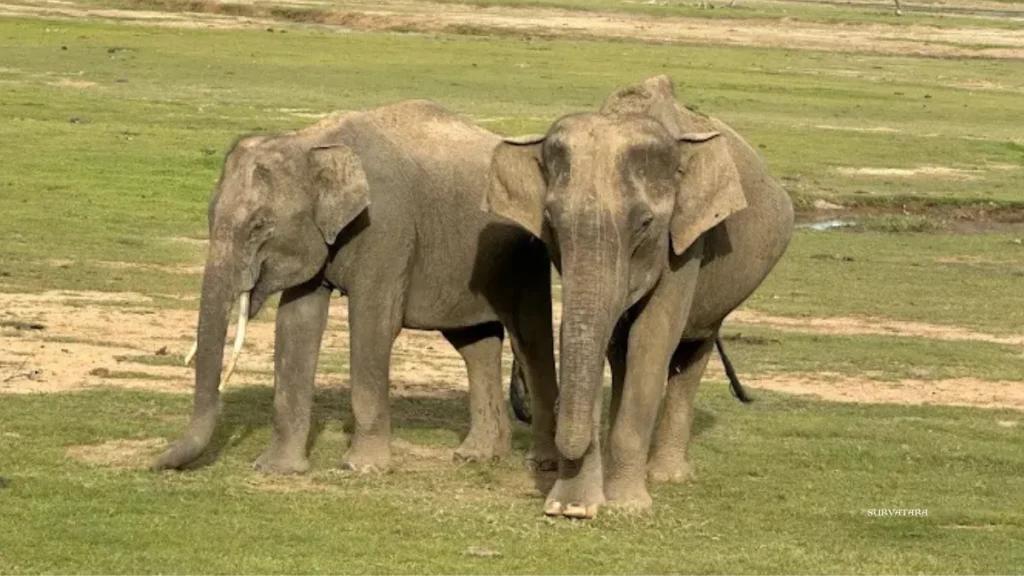
Covering an area of about 357 square kilometers, Kumana National Park forms part of the larger Yala ecosystem but has its distinct identity. The park is best known for the Kumana Villu, a 200-hectare natural swamp lake that attracts tens of thousands of water birds during the migratory season. With its lagoons, mangrove swamps, and dry woodlands, the park offers varied landscapes that support rich biodiversity.
Travelers visiting Kumana can expect a peaceful safari experience, away from the tourist crowds, while still enjoying the thrill of spotting exotic species in their natural habitat.
Key Details About Kumana National Park
| Feature | Details |
|---|---|
| Location | Southeastern coast, Sri Lanka |
| Area | 357 sq. km |
| Established | 1938 (as a bird sanctuary), 2006 (as national park) |
| Famous For | Birds, Elephants, Leopards |
| Closest Airport | Mattala Rajapaksa International Airport (about 100 km away) |
| Best Time to Visit | April to July (birdwatching peak) |
| Safari Options | Jeep Safari, Birdwatching Tours |
Birdwatching Highlights of Kumana National Park
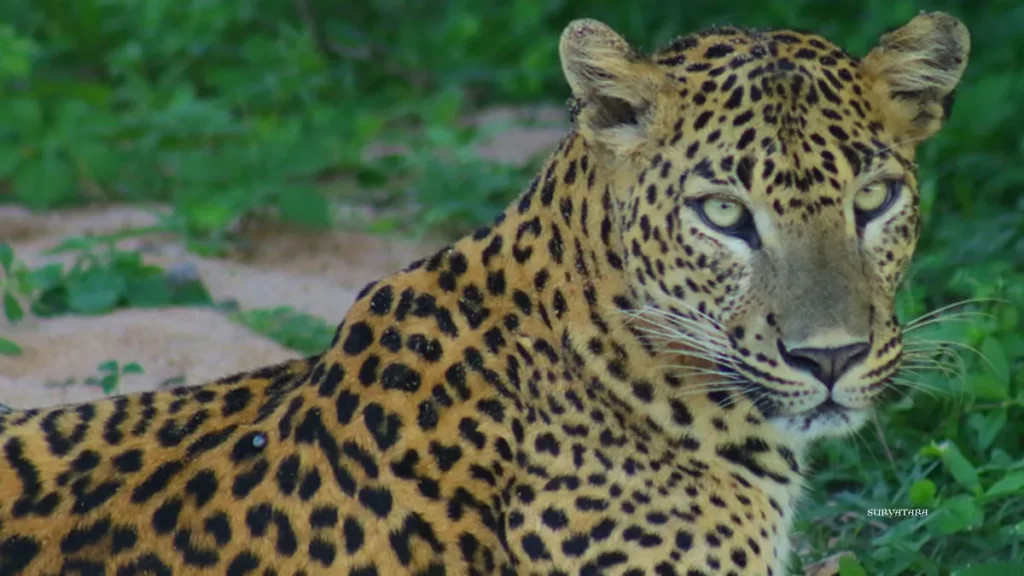
A Sanctuary for Migratory Birds
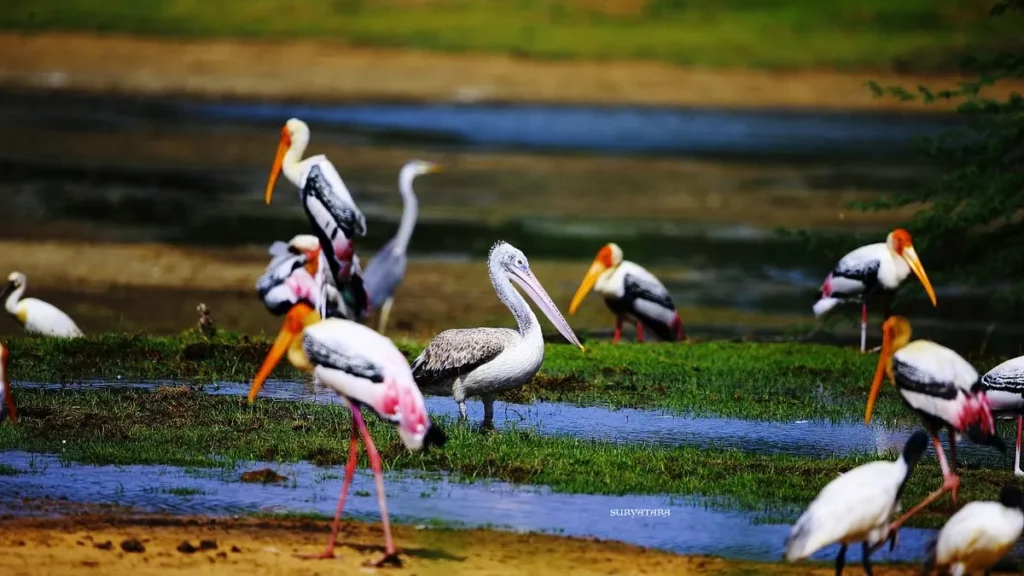
One of the top reasons to visit Kumana National Park is to witness the spectacular influx of migratory birds. Between April and July, species like the painted stork, egrets, spoonbills, and pelicans gather in large numbers. Birdwatchers can also spot rarities like the black-necked stork and lesser adjutant.
Wildlife Beyond Birds
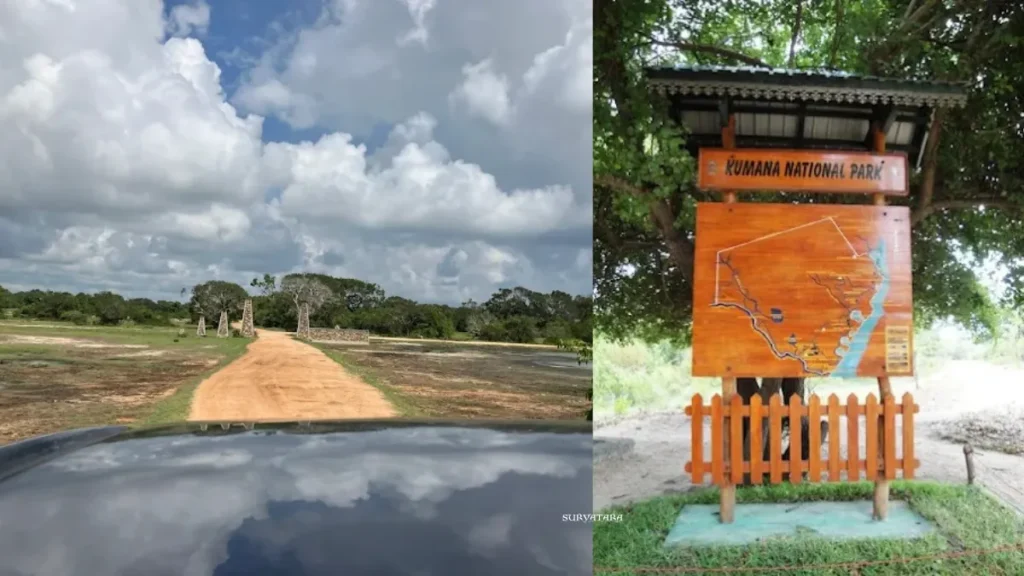
While Kumana is primarily known for birds, it also hosts other wildlife treasures. Visitors may spot Sri Lankan elephants, golden jackals, and even elusive leopards during their safaris. The park’s lagoons are home to mugger crocodiles, adding to the thrilling encounters.
Cultural Significance
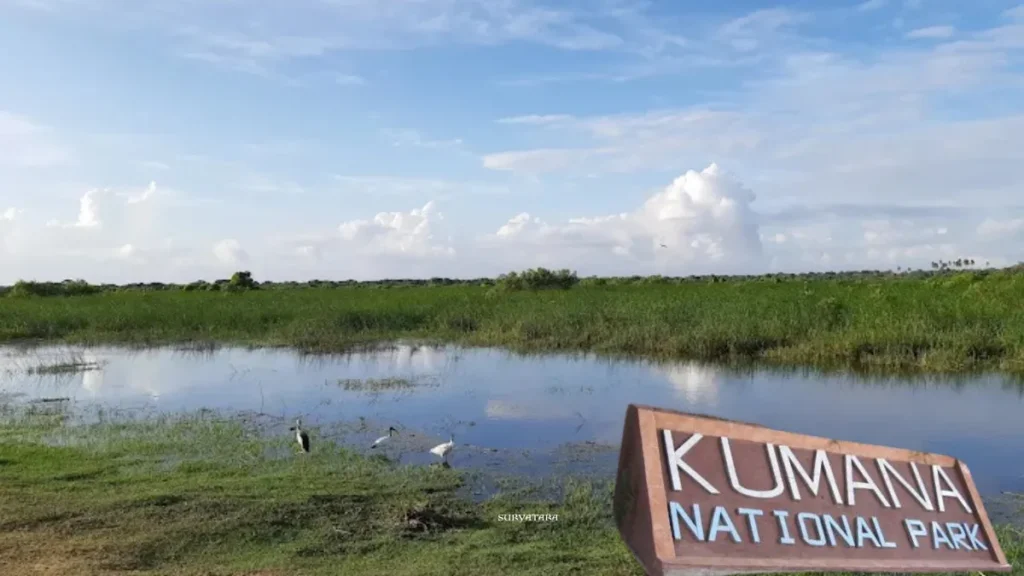
Kumana also holds cultural importance, with ancient rock inscriptions and ruins scattered around the park. It’s believed that early Buddhist monks used the caves in the area, adding a layer of historical intrigue to the natural beauty.
Best Time to Visit Kumana National Park
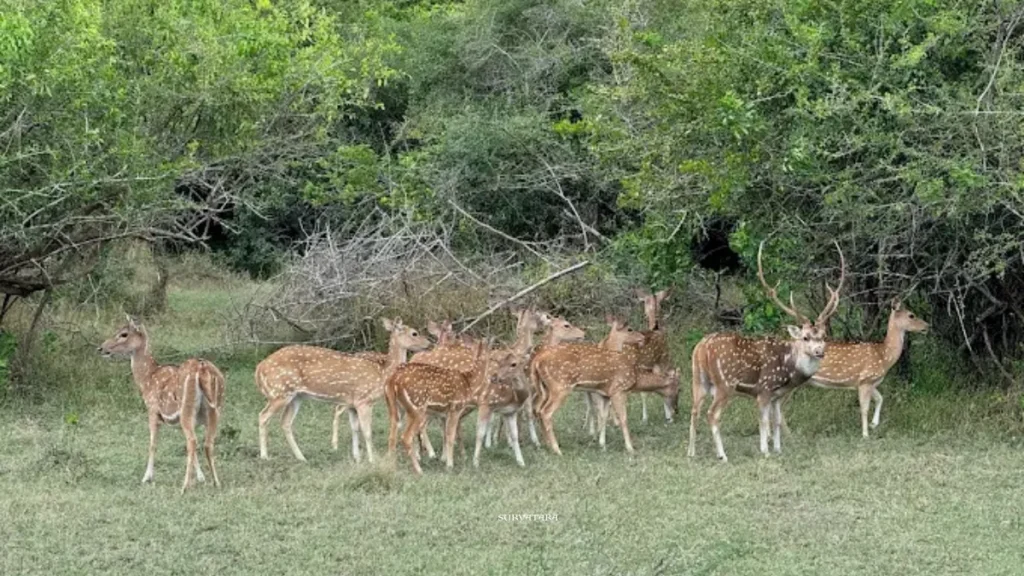
The ideal time to explore Kumana National Park is between April and July, which coincides with the peak birdwatching season. The weather is dry, and water levels in the lagoons attract large flocks of birds. For general wildlife viewing, the park is open year-round, but avoiding the heavy monsoon months (November to January) is advisable.
Also read: Changthang Wildlife Sanctuary: A Hidden Gem of Ladakh’s High-Altitude Wilderness
How to Reach Kumana National Park
- By Air: The nearest airport is Mattala Rajapaksa International Airport, about 100 km away. From there, taxis or rented vehicles can take you to the park.
- By Road: Kumana is well connected by road from towns like Arugam Bay (30 km away) and Kataragama (120 km away).
- By Rail: The closest railway station is at Batticaloa, from where road transport is available.
Travel Tips for Visiting Kumana National Park
- Early morning safaris are the best for birdwatching and wildlife sightings.
- Bring binoculars and a camera with a good zoom lens for capturing birds at a distance.
- Wear light, neutral-colored clothing and carry plenty of water, as temperatures can rise during the day.
Also read: Raimona National Park: Complete Travel Guide to Assam’s Newest Wildlife Sanctuary
Why Kumana National Park Should Be On Every Nature Lover’s List
Kumana National Park offers a serene and enriching wildlife experience that combines birdwatching with the excitement of spotting larger animals. Its relatively low tourist traffic makes it ideal for those seeking tranquility and an authentic connection with nature. Whether you’re a seasoned birder or simply someone who appreciates pristine landscapes and wildlife, Kumana is a destination that promises lasting memories.
